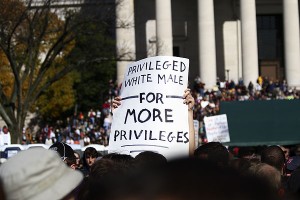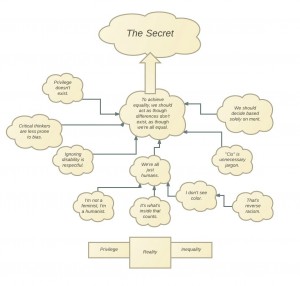Edited to ensure clarity on the fact that the incident with an M&S cashier was an isolated incident rather than a reflection of M&S overall policy.
As a former Muslim who has spent significant amounts of time in the Muslim-dominated parts of London, I have been following the recent Marks & Spencer kerfuffle with great interest. The short version is that it was claimed that Muslim M&S employees are allegedly exempted from ringing up customer purchases that include pork and alcohol. Said cashiers could ask that customers making such purchases join another line to be rung up by a presumably non-Muslim cashier. Thankfully, the incident was at a single store and not a reflection of overall M&S policy.
Despite the fact that the story wasn’t quite accurate in terms of M&S policy, the discussion around the matter had a lot of people defending religious exemptions to job duties. I don’t believe that such an accommodation would be at all reasonable because when one signs up to be a cashier at a store, one is signing up to potentially ring up any of the items sold at the stores, not just the ones that follow one’s personal religious dietary restrictions or other beliefs. Furthermore, if Muslim employees were permitted to redirect customers based on their personal beliefs but other employees aren’t also allowed to refuse to ring up purchases that are against their personal views, it would indicate the privileging of religious views.
That aside, there is a theological flaw in the defense of the alleged objections of the Muslim employees. Simply refusing to handle pork or alcohol hardly changes the fact that all M&S salaries are paid, at least in part, thanks to the sales of haraam items. As one of Muhammad’s sayings goes, “When Allah forbids a thing, He also forbids its price,” meaning that any money gained by the selling of a forbidden thing is considered forbidden money. Should M&S be obligated to ensure that only the profits from halaal items will go towards paying Muslim employees?
M&S has apologized and clarified its position since the story broke. Even so, ensuring that Muslim M&S employees work in the bakery or clothing departments instead of as cashiers doesn’t exactly solve the problem with haraam money making its way into their paychecks.
Had this issue been more than just a single incident, it would have been a classic case of religious folks performing their religious beliefs where convenient (and, I might add, very public) but ignoring the restrictions that they find to be too inconvenient. If they choose to follow their religion in that fashion, they are by all means welcome to do so. However, it’s rather disingenuous to cite religious restrictions as a reason to not do part of your job yet happily cash paychecks that include funds that your religion says are tainted. Thankfully, that wasn’t the case. Regardless, the defense of such behavior and the support of religious privilege surrounding the matter is highly troubling.






